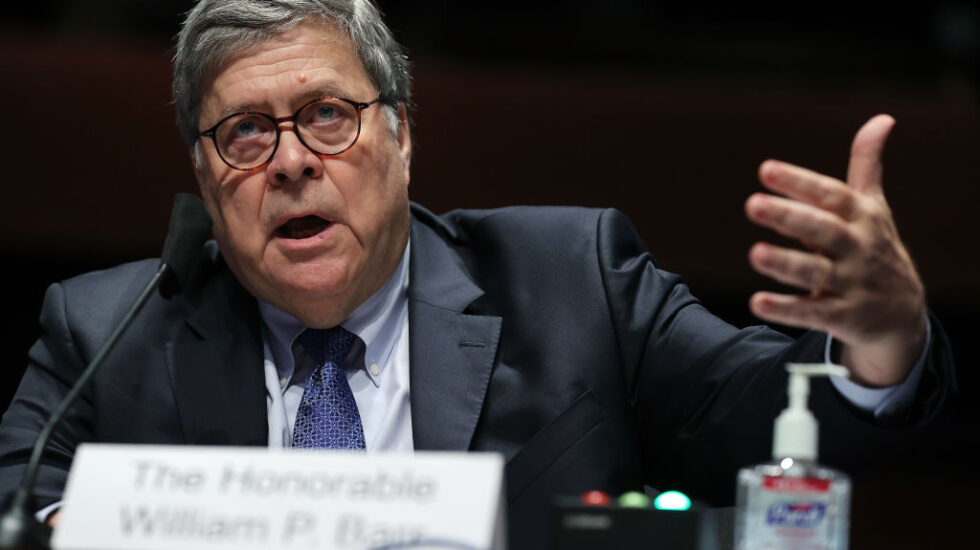Former U.S. Attorney Bill Barr told multiple reporters in recent days that he wasn’t Donald Trump’s “toady,” a characterization he blames on unfair media coverage.
Barr, who is currently promoting a book that contains extensive criticism of Trump, has attacked his former boss’s lies about the 2020 election and has written that Trump “has neither the temperament nor persuasive powers to provide the kind of positive leadership that is needed.”
“Trump cared only about one thing: himself. Country and principle took second place,” Barr writes in his memoir, “One Damn Thing After Another.”
Yet, during a Monday appearance on Today, Barr said he’d likely vote for Trump in 2024 if he was the Republican nominee.
“Because I believe that the greatest threat to the country is the progressive agenda being pushed by the Democratic Party, it’s inconceivable to me that I wouldn’t vote for the Republican nominee,” he said.
Today‘s Savannah Guthrie pushed Barr on the timing of his Trump criticism.
“You say in your book you were worried about the peaceful transition of power. You even had national security concerns … none of this is present in this resignation letter. Didn’t the American people deserve to know what you knew?” Guthrie asked.
Barr explained that he believed Trump’s efforts to overturn the election were “nonsense” that wouldn’t lead anywhere.
In a letter addressed to NBC’s Lester Holt, whose separate interview with Barr aired on Sunday night, Trump called his former attorney general “a big disappointment” who “crumbled under the pressure.”
NBC News details Barr’s conversation with Holt:
In a wide-ranging interview with Holt, Barr defended some of his more controversial actions as attorney general , including a four-page letter he issued ahead of the release of special counsel Robert Mueller’s report on the Trump campaign and Russian interference in the 2016 election. Two federal judges later said the letter was misleading. Mueller himself also expressed frustration that Barr’s letter “did not fully capture the context, nature and substance of this Office’s work and conclusions.”
Barr’s statement said Mueller’s team did not find that anyone in the Trump campaign conspired with Russian efforts to meddle in the 2016 election. A judge said Barr left out the fact that the report identified numerous contacts between members of the Trump campaign and people connected with the Russian government.
Barr said “I totally reject” criticism from the judges, Mueller and others about his letter. “This was not a summary of the report. It was a description of his bottom-line conclusions. I stuck with the bottom line. You say guilty or not guilty. That’s what I did,” he said
NPR also interviewed Barr in advance of his memoir’s publication. The outlet reports:
For all of his criticism of Donald Trump, Barr repeatedly writes that radical leftists are the ones who want to tear down traditional American institutions.
Asked about whether the Jan. 6 attack on the Capitol wasn’t an effort to tear down the democratic system, he said, “I didn’t view it as an insurrection. I mean, I think it was a riot that got out of control.”
Despite calls from a pro-Trump mob at the Capitol that day to “hang Mike Pence,” Barr said he didn’t take the threat against the then-vice president literally. “I thought that that was essentially a propaganda-type thing,” he said.
